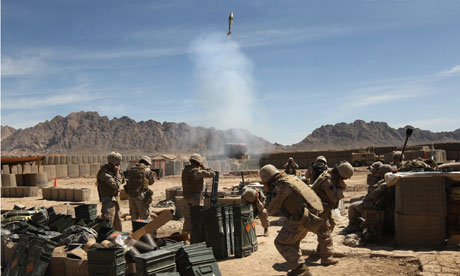S A Aiyer in The Times of India
All my life I have opposed nuclear bombs. I have argued that such bombs are basically unusable; that, instead of ensuring security, they risk escalation of small conflicts into disasters; and that they lead to undesirable macho foreign policies. Most Indians exulted after India’s nuclear tests of 1998, claiming India was now a great power on par with the US. I cautioned that India was merely on par with Pakistan and North Korea. However, after seeing Ukraine bullied by Russia, I have to revise my views. Nukes are not useless, and may be essential deterrents.
Ukraine was one of a dozen new states created when the Soviet Union broke up in 1991. It emerged independent with a massive 1,190 nuclear warheads, more than the arsenals of Britain, France and China combined.
But it mistakenly thought that the Soviet collapse heralded the end of Moscow’s domination. So, it agreed to give up all its nukes and send them to Russia for destruction. In return, the US, Russia, and Britain signed the 1994 Budapest Memorandum on Security Assurances, pledging to safeguard Ukraine’s territorial sovereignty. This was greeted with universal applause.
Today, Ukraine knows it made a terrible mistake: it can no longer deter its powerful neighbour. Last month, Russia sent troops to annex Ukraine’s Crimea province. Now Russia threatens to split the rest of Ukraine, converting Eastern Ukraine (where a quarter of the population is ethnic Russian) into a puppet state, just as it earlier used armed muscle to convert the Russian-ethnic regions of South Ossetia and Abkhazia in Georgia into puppet states. Armed Russian infiltrators have teamed up with local ethnic Russians to seize major cities in eastern Ukraine. Ukrainian troops and police are too fearful of Russian firepower to offer much resistance. How they regret giving up nukes!
Last week’s Geneva talks proposed peace, but with no teeth at all. Neither the US nor the UK, both Budapest Memorandum guarantors, is willing to stop Russia militarily. They are reluctant to even impose stiff economic sanctions, since Putin could retaliate by slashing gas supplies to Europe and nationalizing Western investments in oil and gas.
Western security guarantees to Ukraine have proved as empty as those given to Czechoslovakia before World War II. When Hitler demanded the right to expand into Czechoslovakia to “protect” ethnic Germans there — the same excuse used by Putin to move into Eastern Ukraine — the Western powers gave in.
Putin’s words in a TV interview were straight out of Hitler’s book. “We definitely knowthat we should do everything to help these people (ethnic Russians) defend their rights and define their destiny . We will fight for this. The Federation Council (of Russia) gave the president the right to use military force in Ukraine. I hope very much that I don’t have to use this right.”
Most Indians are uninterested in a far-away country like Ukraine. Anti-US Indians are happy to see Putin bash the West. Yet the Putin principle is monstrous. How would readers react to Pakistan wanting to take over Muslim-inhabited areas in India to protect Muslims there? Or to Bangladesh taking over Assam to protect Bangladeshi migrants there?
India is militarily strong and so can resist any such threats. Ukraine, Georgia and most states cannot. The USSR once posed an existentialist threat to the West, which therefore took security guarantees seriously. But no more. The West will honour military commitments only when this is costless, or affects its core interests. Ukraine has taught the world not to depend on the promises of the mighty.
One consequence will be more nuclear proliferation. Japan and Korea have long avoided nukes, and depended on a US security umbrella. After Ukraine, they will think again. I predict both will go nuclear in a decade.
Saudi Arabia, fearful of Iran and Iraq, has long depended on US security guarantees, including steps to prevent Iran from getting an N-bomb . After the Ukraine fiasco, Saudi Arabia knows how hollow US assurances are, and will embark quietly on a nuclear plan. The US invaded Iraq and Afghanistan, and bombed Libya. Would it have done so if those countries had nuclear bombs? For an answer, look at North Korea. This country has violated the UN charter repeatedly, attacked South Korean ships, and poses a security threat to East Asia. But the US does not intervene because North Korea has nukes.
Lesson for non-nuclear states: don’t depend for security on the big powers who will dump you when convenient. Disarmament is for wimps. Go get your own nukes if you can. More nuclearization will deter some invasions, but also increases chances of a nuclear clash or accident. It is not a panacea. But it is now inevitable.

